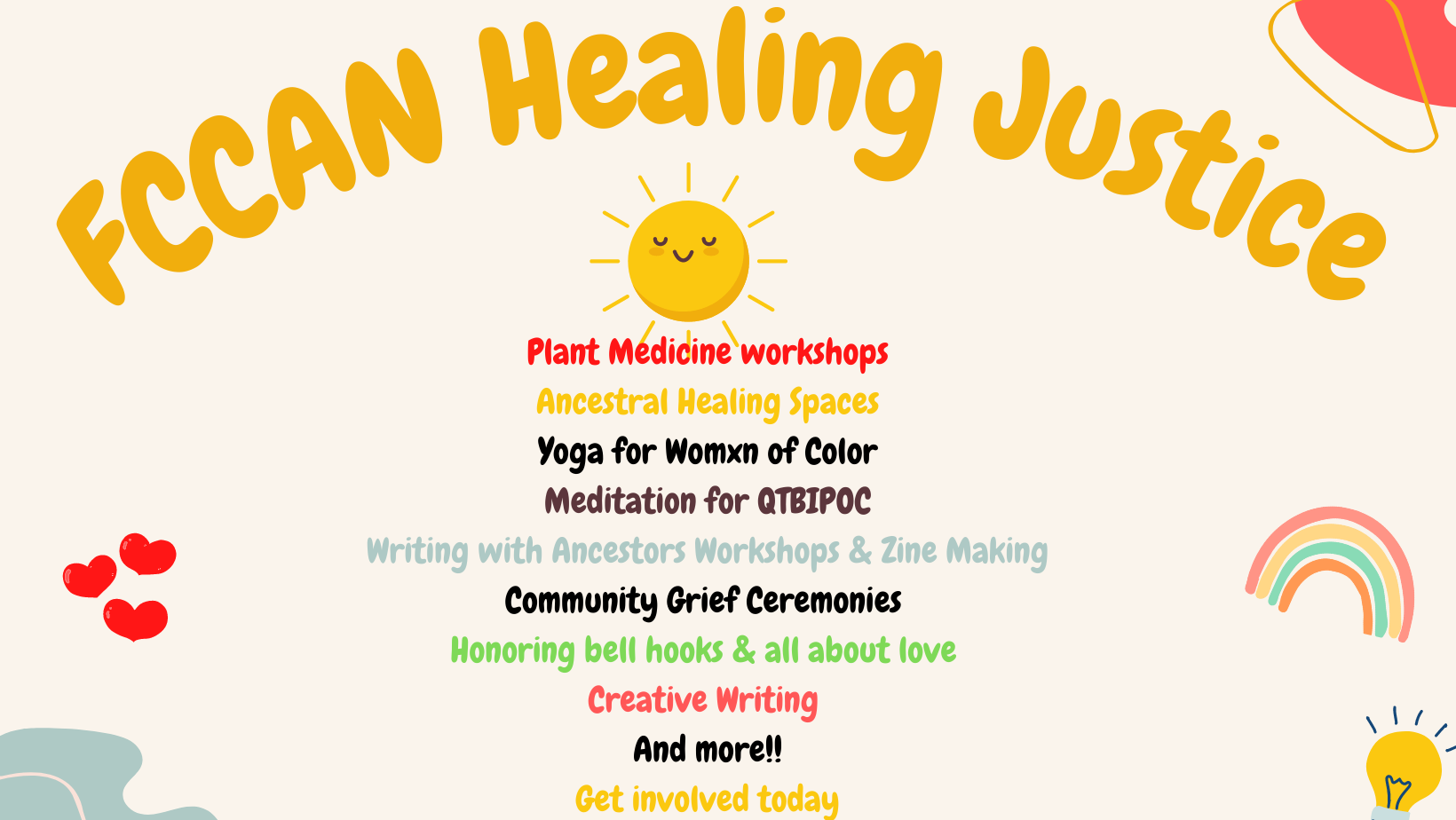
“Our movements themselves have to be healing, or there’s no point to them”\ —Cara Page, Kindred: Southern Healing Justice Collective
What is Healing Justice?
Healing Justice began out of necessity in the late Fall of 2018. A group of young women of color and queer folks (QWOC) who held a shared sense of responsibility to create a program that would address the oppression and trauma they were experiencing in their bodies, minds and spirits from the police, government and other white supremacist institutions. They needed a wellness space that understood that the artificial divisions between our activist and spiritual spaces perpetuated colonialism. For more background information, read here.
Many of us hunger for a community to support the integration of self care, inner work, collective care, real commitment to challenging injustice, and powerful action. We need a place to gather together to practice embodiment through movement and meditation. We are searching for dialogue that builds trust, leads us to gain insight together, and to strengthen the capacity for resilience in ourselves. Healing Justice is honoring and nurturing our collective capacities to heal ourselves- while supporting QWOC activists in our community through resource sharing and education.
Together we are practicing how to bridge our spiritual community and activist community in FCCAN- we are creating Healing Justice, an intergenerational ritual to nourish the body through movement based spiritual practices, cultivate a renewed sense of awe, joy, healing and interconnection for a community of Dreamers, organizers, creatives, community members, and their chosen families. Healing justice has blossomed out of the truth that living systems and structures are learning and changing. In this moment of history, healing justice is a call to engage and learn from small experiments that center radical dharma, gender justice, nourish critical connections with food justice, decolonize our wellness spaces and build grassroots movements in Fort Collins that center the healing of POC.
Practicing Sanctuary
Sanctuary is defined as a “place of refuge or protection”. We hear it referenced a lot in yoga and wellness spaces, where many are seeking an oasis from the daily grind, a place to find one’s self. We move, we breath, we contemplate, we chant. We say things like “Lokah Samastah Sukhino Bhavantu” which translates to “may all beings be happy and free and may the thoughts, words and actions of my own life contribute in someway to that happiness and to that freedom for all“. And then we go back to our busy lives and lose ourselves again. It’s not a sanctuary, it’s an escape.
Because the “sanctuary” experience in white-dominated wellness spaces looks more like comfort, entitlement and status quo. We prefer neutralized, “positive vibe” environments that bypass the truth of who we are and what’s happening outside our gilded doors.
And here’s the thing, there is no transformational pathway that excludes and denies the experience of so many. White silence is violence. Inaction is oppression. And complicity is harm.
If we are serious about our spirituality and wellbeing, we need to practice sanctuary. Practicing sanctuary calls on our best selves to show up for one another. We call it practice, because this is not about being perfect or getting it exactly right, but about being rigorous in our commitment and courageous in our actions. As we resist, we will confront conflict and face fear. Our resilience comes in remembering who we are and who we are to one another.
Our Partners
The BIPOC Alliance